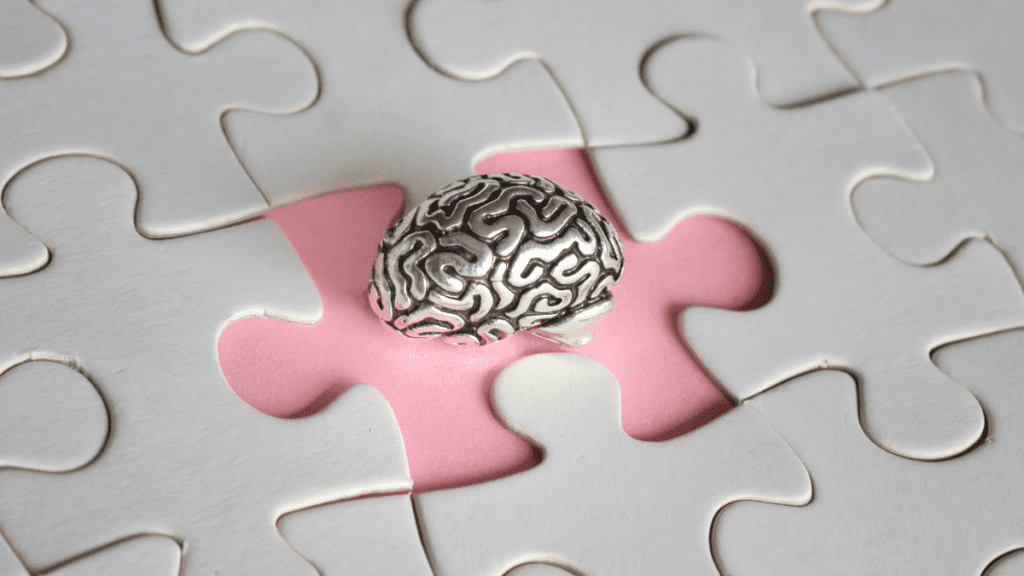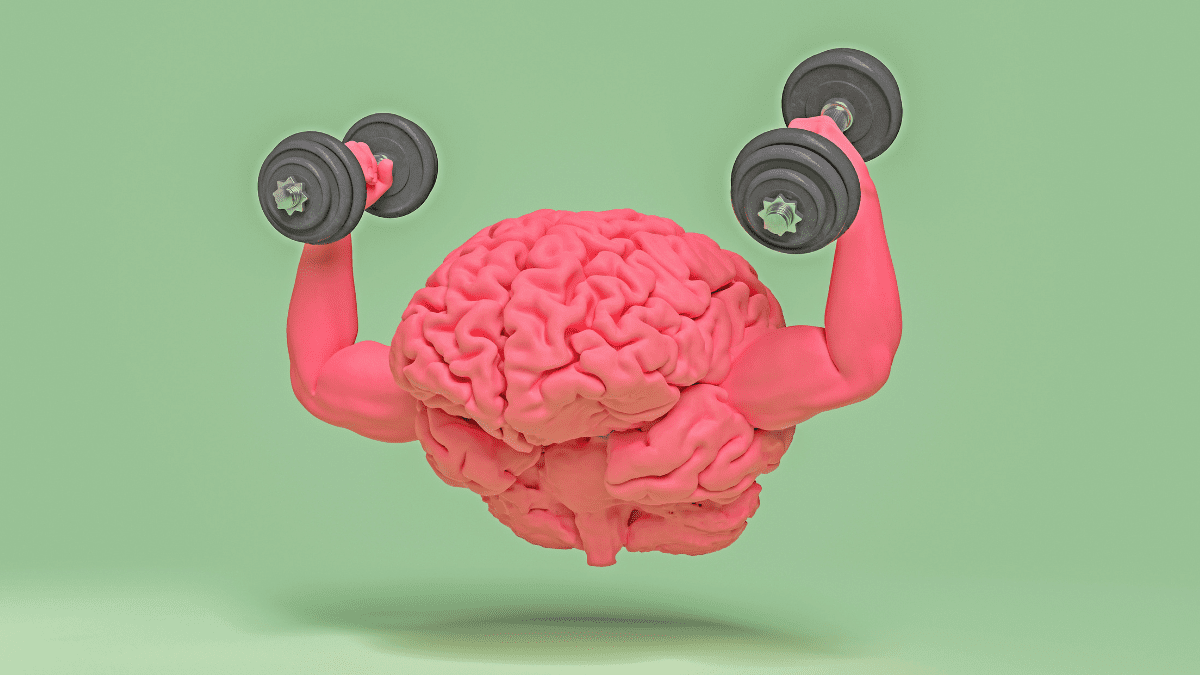Spirituality and Mental Health: Heal Your Mind Now
Spirituality influences the brain in powerful ways, improving mental health, reducing stress, and enhancing well-being. Discover the science behind belief systems and their impact on the mind.

For centuries, spirituality has been a source of strength, comfort, and purpose. But beyond belief and faith, science now shows that spirituality and mental health are deeply connected. Research reveals that spiritual practices like meditation, prayer, and gratitude can physically change the brain, improving emotional well-being and resilience.
Studies from Harvard Medical School and the National Institutes of Health (NIH) suggest that individuals with a strong spiritual connection may experience lower levels of anxiety, depression, and chronic stress. Whether through religious faith or secular mindfulness, spirituality appears to rewire the brain for greater peace and happiness.
But how exactly does spirituality impact mental health? And can it truly heal the mind? In this article, we’ll explore the science behind spirituality, its effects on the brain, and how you can incorporate spiritual practices into your daily life to enhance your well-being.
What Is Spirituality and Mental Health?
Spirituality is often associated with religion, but it extends far beyond faith and worship. At its core, spirituality is about seeking meaning, purpose, and connection—whether to a higher power, nature, or the inner self. While some find spirituality through religious practices, others experience it through meditation, gratitude, or personal growth.
Religious vs. Secular Spirituality
Spirituality can take many forms, but it generally falls into two categories:
- Religious Spirituality – Involves faith-based beliefs, prayer, sacred texts, and connection to a divine presence. Examples include Christianity, Islam, Hinduism, and other organized religions.
- Secular Spirituality – Focuses on personal growth, inner peace, and mindfulness without ties to a specific faith. Practices like meditation, yoga, nature immersion, and gratitude journaling are common in secular spirituality.
Both forms of spirituality contribute to mental well-being, providing a sense of purpose, emotional resilience, and stress relief. Whether practiced through faith or mindfulness, spirituality can be a powerful tool for personal transformation.

The Science Behind Spirituality and Mental Health
Modern neuroscience has revealed a fascinating link between spirituality and mental health. Studies show that spiritual practices can physically alter brain structures, leading to improved emotional regulation, reduced stress, and enhanced well-being. Whether through prayer, meditation, or gratitude, spirituality activates key brain regions that influence mental health.
How Spirituality and Mental Health Are Connected in the Brain
Scientific research has identified specific brain regions affected by spiritual practices:
- The Prefrontal Cortex – Responsible for decision-making and self-awareness, this region becomes more active during meditation and prayer, leading to greater emotional control and mindfulness.
- The Limbic System – This area regulates emotions and stress responses. Spirituality has been linked to reduced activity in the amygdala, the brain’s fear center, which helps lower anxiety and emotional distress.
- The Default Mode Network (DMN) – Meditation and spiritual reflection deactivate this brain network, reducing overthinking and promoting a sense of peace.
Scientific Evidence on Spirituality and Mental Health
Numerous studies confirm the mental health benefits of spirituality:
- A study from Harvard Medical School found that meditation and prayer increase gray matter density in the brain, enhancing emotional resilience.
- Research published in JAMA Psychiatry suggests that individuals with a strong spiritual connection have a 40% lower risk of depression compared to those without spiritual practices.
- The National Institutes of Health (NIH) reports that mindfulness and spiritual beliefs can help reduce cortisol levels, the stress hormone linked to anxiety and burnout.
These findings suggest that spirituality is not just a belief system—it is a biological mechanism that supports mental health. Whether practiced through religion, mindfulness, or personal reflection, spirituality can reshape the brain in ways that promote inner peace and emotional stability.
Scientific research shows that spirituality physically changes the brain, strengthening emotional resilience and reducing stress. Studies confirm its role in long-term well-being:
- National Institutes of Health (NIH): The Neuroscience of Spirituality
- Harvard Medical School: The Mental Health Benefits of Spiritual Practices
The Psychological Benefits of Spirituality and Mental Health
Spirituality actively strengthens mental health by reducing stress, increasing resilience, and promoting emotional well-being. Whether through prayer, meditation, or personal reflection, spiritual practices train the brain to handle challenges more effectively.
How The Link Between Spirituality and Mental Health Lowers Stress and Anxiety
- Spiritual practices reduce cortisol levels, the hormone responsible for stress. Research from the National Institutes of Health (NIH) confirms that daily meditation and prayer lower anxiety levels and promote relaxation.
- People who engage in faith-based or mindfulness practices often develop better emotional regulation, making them less reactive to negative situations.
Spirituality Increases Resilience and Emotional Strength
- Studies from Harvard Medical School show that spiritual beliefs enhance resilience, helping individuals recover faster from trauma, grief, and adversity.
- Practicing gratitude, a common spiritual exercise, boosts dopamine and serotonin production, the brain’s “happiness chemicals.”
How Spirituality and Mental Health Boosts Happiness and Life Satisfaction
- People with strong spiritual beliefs report higher life satisfaction. A study published in JAMA Psychiatry found that individuals who practice spirituality experience 40% lower rates of depression compared to those who don’t.
- Spiritual communities offer support systems, reducing feelings of loneliness and increasing a sense of belonging, which directly improves mental health.
By actively engaging in spiritual practices, individuals rewire their brains for happiness and emotional stability. The next section will explore how spirituality helps treat specific mental health disorders.
Spiritual practices like gratitude, meditation, and prayer have been shown to boost happiness and life satisfaction. Read more about the connection between spirituality and mental well-being here:
- JAMA Psychiatry: Spirituality and Depression Risk Reduction
- American Psychological Association (APA): How Spirituality Helps Mental Health
How Spirituality and Mental Health Connect in Treating Disorders
Spirituality plays a crucial role in improving mental health disorders like depression, PTSD, and anxiety. Research shows that spiritual practices promote emotional healing, helping individuals build resilience and find purpose during difficult times.
How Spirituality Helps with Depression and PTSD
- Studies from JAMA Psychiatry reveal that individuals who engage in spiritual practices experience a 40% lower risk of depression.
- Meditation, prayer, and gratitude stimulate the prefrontal cortex, the brain’s center for positive thinking and emotional regulation.
- Many PTSD survivors use spirituality as a coping mechanism, helping them process trauma and find deeper meaning in their experiences.
The Role of Rituals and Faith in Emotional Healing
- Religious and spiritual rituals provide structure and comfort, reducing uncertainty and emotional distress.
- Studies show that reciting affirmations or prayers activates the brain’s reward system, leading to increased feelings of hope and motivation.
- Faith-based support groups offer community and guidance, reducing isolation and fostering mental stability.
Spiritual Communities Improve Mental Well-being
- People who engage in spiritual communities report higher levels of happiness and lower rates of anxiety.
- Studies from Harvard Medical School show that social connections formed through spiritual gatherings reduce loneliness and strengthen emotional resilience.
- Whether through group meditation, prayer circles, or support networks, spirituality fosters a sense of belonging and purpose.
Spirituality does not replace professional therapy, but it works alongside mental health treatments to improve emotional recovery. In the next section, we’ll explore practical ways to integrate spirituality into daily life for better mental health.
Spirituality has been linked to improved mental health outcomes for those struggling with anxiety, PTSD, and depression. Research highlights these findings:
- National Library of Medicine: Spirituality as a Coping Mechanism for PTSD
- Harvard Gazette: Spirituality and Recovery from Mental Health Disorders

Practical Ways to Use Spirituality for Mental Well-being
Integrating spirituality into daily life actively enhances mental health. Whether through meditation, gratitude, or rituals, spiritual practices help regulate emotions, reduce stress, and strengthen resilience.
Practice Mindfulness and Meditation
- Mindfulness meditation trains the brain to stay present, reducing anxiety and improving emotional control.
- Studies from Harvard Medical School confirm that meditation boosts gray matter in brain regions linked to self-awareness and stress regulation.
- Apps like Headspace and Insight Timer offer guided meditations for spiritual growth and mental clarity.
Use Prayer and Affirmations for Emotional Strength
- Prayer activates brain regions linked to relaxation and inner peace, fostering a sense of security.
- Affirmations rewire neural pathways, reinforcing positive thinking and self-compassion.
- Studies from the National Institutes of Health (NIH) show that people who practice prayer and affirmations experience lower stress levels and improved resilience.
Create Rituals That Bring Purpose
- Daily spiritual rituals like journaling, lighting a candle, or setting intentions help structure thoughts and emotions.
- Studies show that rituals create a sense of stability and reduce psychological distress.
- Engaging in personal or religious rituals deepens self-awareness and emotional grounding.
Cultivate Gratitude and Forgiveness
- Gratitude journaling increases dopamine and serotonin production, naturally elevating mood.
- Practicing forgiveness releases emotional burdens, reducing stress and resentment.
- Research published in JAMA Psychiatry confirms that gratitude and forgiveness significantly lower symptoms of depression and anxiety.
Connect with a Spiritual Community
- People who join spiritual communities report stronger emotional well-being and reduced loneliness.
- Whether through religious groups, meditation circles, or mindfulness workshops, social connections provide emotional support and resilience.
- Harvard research indicates that spiritual connections enhance life satisfaction and mental health.
By incorporating spirituality into everyday life, individuals build stronger emotional foundations, improve mental health, and find deeper meaning in their experiences. The next section will address whether spirituality can replace therapy or should work alongside it.
Many spiritual practices enhance mental health, including yoga, which promotes relaxation and emotional balance. Read more about how yoga can help:
Yoga for Stress Relief: Calm Your Mind, Free Your Soul
Conclusion
Spirituality and mental health share a deep connection, influencing how individuals cope with stress, heal from trauma, and find meaning in life. Science confirms that spiritual practices rewire the brain, reducing anxiety, improving emotional regulation, and promoting inner peace. Whether through meditation, prayer, gratitude, or spiritual community, engaging in spirituality strengthens mental resilience and overall well-being.
However, while spirituality enhances mental health, it should not replace professional therapy. A holistic approach that combines spirituality with evidence-based mental health treatments offers the best results. By integrating both, individuals can experience deeper healing, emotional stability, and long-term mental wellness.
Frequently Asked Questions (FAQ)
1. How does spirituality affect mental health?
Spirituality helps improve mental health by reducing stress, increasing resilience, and promoting emotional balance. Studies show that spiritual practices like meditation and prayer activate brain regions linked to relaxation and positive thinking, leading to greater well-being.
2. Can spirituality help with anxiety and depression?
Yes, research suggests that spirituality lowers cortisol levels, improves emotional regulation, and fosters a sense of hope. Many individuals with anxiety or depression find relief through mindfulness, gratitude, and faith-based support systems. However, spirituality works best when combined with professional therapy for severe cases.
3. Is there a difference between spirituality and religion?
Yes. Religion is an organized belief system with specific doctrines, while spirituality is a broader concept that focuses on personal meaning, inner peace, and connection—whether to a higher power, nature, or self-discovery. A person can be spiritual with or without following a religion.
4. Can I be spiritual without believing in a higher power?
Absolutely. Many people practice secular spirituality through meditation, mindfulness, gratitude, or personal growth. Spirituality doesn’t require religious belief; it’s about seeking purpose and connection in life.
5. How can I incorporate spirituality into my daily life?
You can integrate spirituality by:
- Practicing mindfulness to stay present and reduce stress.
- Keeping a gratitude journal to focus on positivity.
- Engaging in meditation or prayer for emotional clarity.
- Spending time in nature to feel connected and grounded.
- Joining a spiritual community for support and deeper reflection.
Spirituality offers powerful mental health benefits, and small daily practices can help you experience more inner peace, resilience, and emotional strength.







